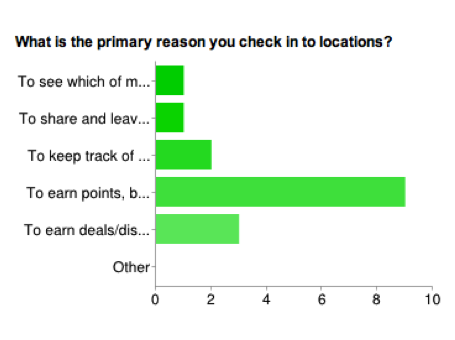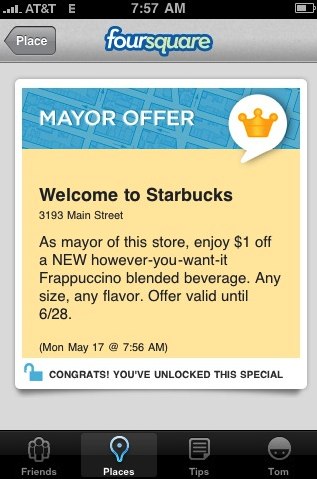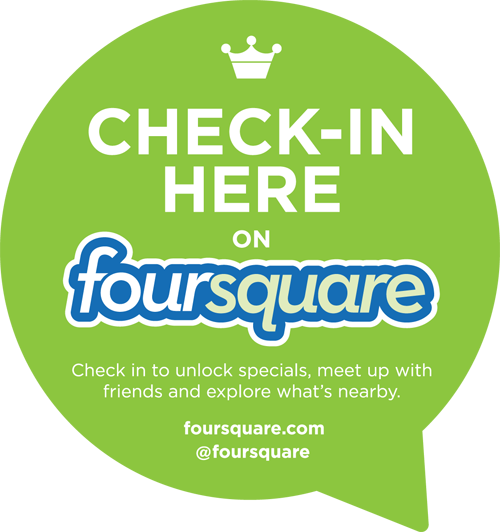What it Means to Be the Mayor
The Social Influence of Location-based Check-ins
Introduction
This paper analyzes the current literature on foursquare and location-based services (LBS) to assess hype and motivations of use. Psychological methods of influence are related to the current status of LBS usage to ascertain the potential for social influence in frequent LBS users. A preliminary survey was conducted to look into the role of foursquare mayors. The results are revealed to deduce areas of further research and interest related to the meaning of the mayor title and the trustworthiness of tips and comment features.
Location-based sharing has the potential for greater influence in the realm of social media because it requires user action and has direct impact on real-world locations. In foursquare, when a user has earned the top number of check-in days for a given location they are given the title “Mayor.” For the consumer this “mayorship” can be a badge of pride and earn them special privileges like free drinks or discounts, but the role of mayor signifies something more than just an arbitrary title. These foursquare mayors have the potential to become opinion leaders in their niche areas of interest.











